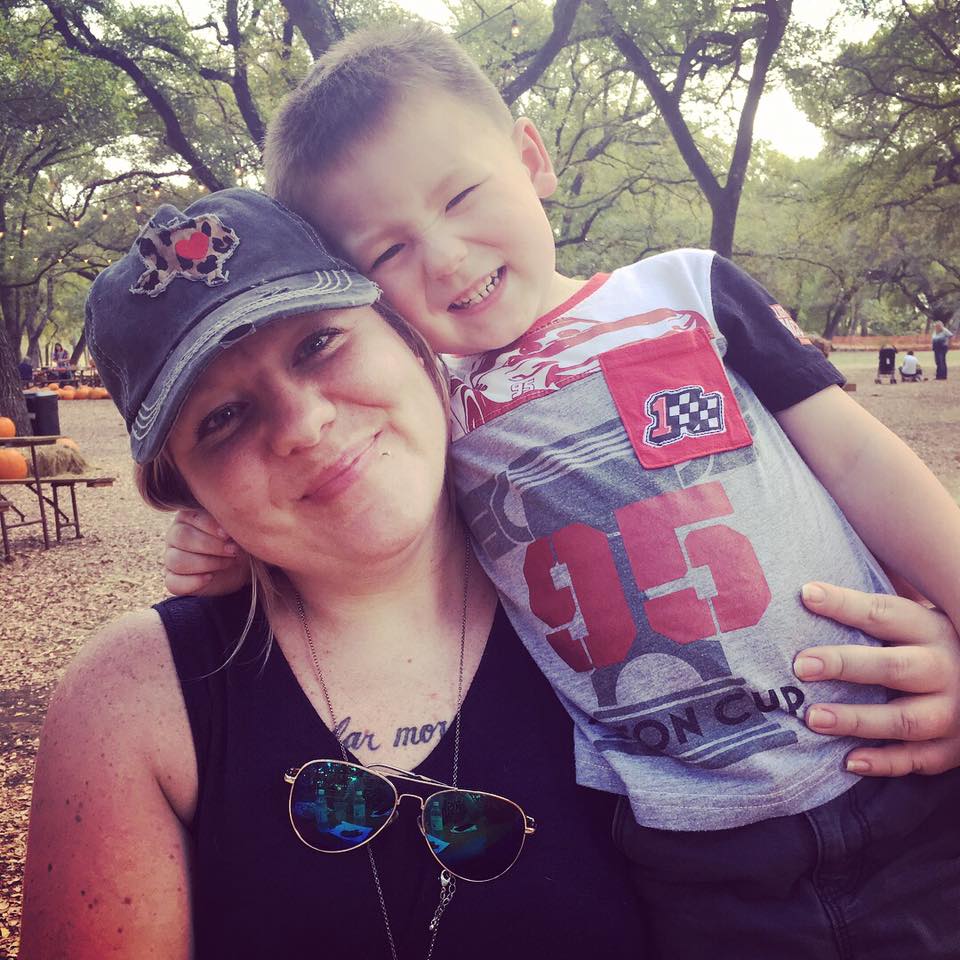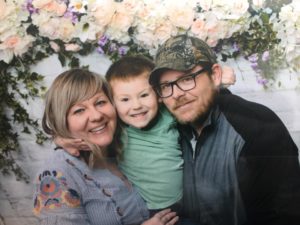
Miranda Hull Customer Care at Harman PRO
Since 2011, Miranda Hull has worked for Harman PRO brands leading in the Regional Sales Office, now called Customer Care. In less than a year Miranda had a son and was diagnosed with 2A Hodgkin’s Lymphoma. Compounded with Lupus, and company-wide changes, Miranda quickly learned the value in work/life balances in a tech-focused industry.
Miranda and I start the conversation with small talk about the weather. Miranda in Texas, and myself in Kansas, we quickly jump into her life at Harman…
After Harman acquired AMX, it was decided that they would absorb AMX’s customer care team and be retrained to assist in areas outside of Video & Control. “[I had this team] reporting to me, and basically I had to train them all on Harman process and audio brands. Which was, you know, kind of a big task. We have a bunch of brands, and they were very familiar with one brand. For them, it was more of a relaxed day and our day [at Harman] is not like that at all. By that I mean we are crazy busy most of the time.” In September of 2017, Harman PRO had a company-wide restructuring. Just a few months prior to this restructure, Miranda had moved from Indiana to Texas to lead Customer Care for the west coast. Well, unfortunately, this restructure included the closing of the Indiana branch of Customer Care. “It was bad and good. You know, there’s always good things about [restructuring], but it was hard with my friends, the people I know, the seasonal employees.” Miranda goes on to explain, “I basically had AMX employees who I was training on audio, but there weren’t anywhere near…they just didn’t have the experience with the audio side of things which is a large majority of our business.” Miranda was told that she would now be managing the Customer Care team, a step up from the supervisory role she had been holding. Since September, Miranda has been on a hiring frenzy, trying to hire and train people to take care of customers for all of Harman Audio here in the US.
I add in, “Hiring two people and trying to train them can be a lot of work.”
Miranda has 20.
“I’m glad that, you know, that the change happened. I’ve got so much more experience now. And that wouldn’t have happened if I had gotten let go.”
“Is it safe to say that the biggest hurdle you’ve had at Harman so far has been the restructure and the hiring of a lot of people?” I ask.
We both chuckle and Miranda answers, “When you’re in a different role where you’re not in charge of things, life is a little easier. Definitely, the restructure was a huge change, and a lot of things fell into my lap. Even now, it kind of goes into another question you had asked…but being in a different state without friends and family…my time is very precious to me because I have a four-year-old child. I’ve gone through some stuff in my life where work isn’t number one in my life. It’s just not. My life is more than that.”
In an endless flow of emails, Miranda makes great effort to disconnect from work when necessary. Job security is often a double-edged sword in that you will likely always have a job, but it becomes difficult for a team or department to run with your absence. Miranda speaks on the balance of work and life:
 “Because I have so much responsibility, I walk a very fine line of knowing when to put the computer away, put the phone down, and go home. That’s been hard for me because I feel a lot of pressure (not from any one person in particular) but just knowing there are a ton of people out there [17-20] that need me.” The day previous her son became ill, and Miranda needed to work from home. “[Whenever my son is sick] I make sure that I’m online all day. If [my team] has any questions they know to call me, text me, Jabber me, email me, and I will respond to them. And, I feel a little guilty about that, and I don’t want to feel guilty about that. My son is sick, and he’s my priority. For me, that is a fine line, and I need to be cognizant of that.”
“Because I have so much responsibility, I walk a very fine line of knowing when to put the computer away, put the phone down, and go home. That’s been hard for me because I feel a lot of pressure (not from any one person in particular) but just knowing there are a ton of people out there [17-20] that need me.” The day previous her son became ill, and Miranda needed to work from home. “[Whenever my son is sick] I make sure that I’m online all day. If [my team] has any questions they know to call me, text me, Jabber me, email me, and I will respond to them. And, I feel a little guilty about that, and I don’t want to feel guilty about that. My son is sick, and he’s my priority. For me, that is a fine line, and I need to be cognizant of that.”
I tell Miranda about my thoughts on work culture here in the US: “Just as a culture in America, particularly since the financial crash, has made a very dramatic shift to working way too much and not valuing the home time. I know that I struggle with it. I’m unsure if it’s because I’m a woman and I feel the need to overcompensate by always being there, always being available, always being clocked-in ready to go, and on-call 24/7. I can actually feel other parts of my life wither. I’ve put so much of my spirit and energy into work, which on one-hand is super fun, but is so easy to let other parts suffer as consequences.”
Miranda responds, “I’ve seen colleagues and team members answer emails at crazy hours. I think the unspoken rule is that you are always available. And I don’t want that. Especially since my cancer diagnosis.” We jokingly talk about the Do Not Disturb function on our phones as our only true escape from digital information.
Three years ago Miranda was diagnosed with cancer just nine months after having her son. If having a child wasn’t enough to refrain her thought process, the idea of cancer would certainly do the trick. “I had stage 2A of Hodgkins Lymphoma. My oncologist told me it was curable cancer and that stage 2 was a good stage to have, and if you were gonna have cancer Hodgkins was a better option.” Miranda underwent seven months of chemotherapy, then returned to work in her position (at the time) of team-lead. Harman clearly has the backs of their teams, supporting Miranda with a benefit concert as well as allowing her to not only have time after the birth of her son but the chemotherapy.
Miranda is an incredible woman, with an incredible journey. With so much change is such little time, she has truly been able to shine. The work/life balance she maintains along with her love for her position at Harman, it is easy to see how she is able to have it all, as they say. She spends her days training and teaching new hires all about audio troubleshooting and support, and her evenings with her family. If we as an industry could take a little piece of everything Miranda has learned through the last five years, we would all be better for it.